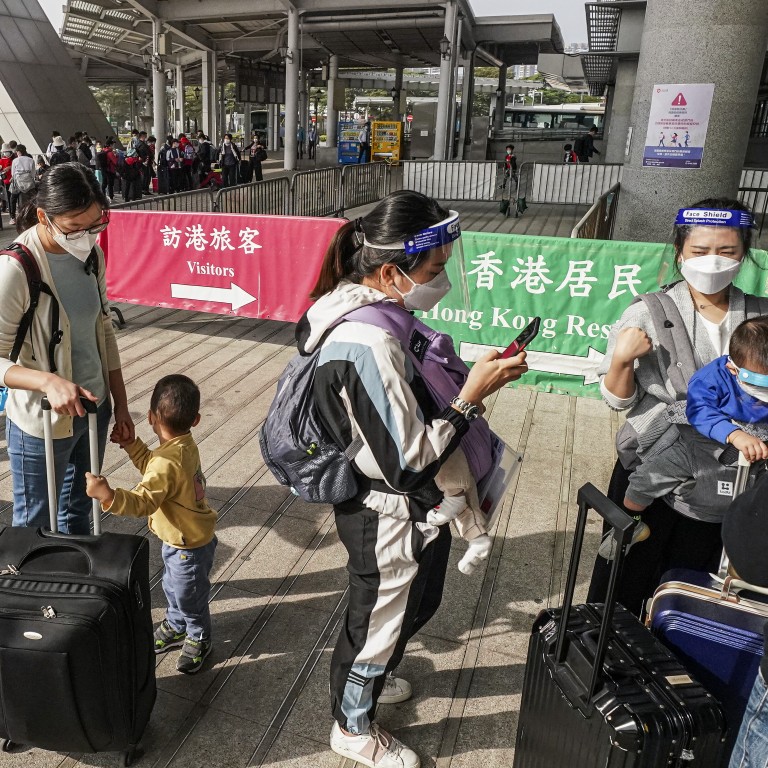
Coronavirus: talks with Guangdong on resuming cross-border travel must start from scratch, Hong Kong leader admits
- Provincial authorities have not made any promises to city over scheme to restart travel, Carrie Lam tells lawmakers
- Hong Kong will need to significantly raise its vaccination rate to put the government in a strong position for talks, she warns
Guangdong provincial authorities have not made any promises to Hong Kong about quarantine-free travel across the border and any talks must start from scratch, the city’s leader has revealed.
In November last year, Hong Kong officials planned for the adoption of a quota system under which travellers with important business could cross the border, but the scheme was derailed by the fourth wave of the pandemic.
Lam said she brought up the topic of resuming cross-border travel whenever she met officials from the central government or Guangdong.
“Guangdong province has not promised anything on reopening the city’s borders with the mainland,” she told lawmakers in the Legislative Council. “When a previous plan we negotiated cannot be pushed forward, then it’s gone. Now we have to start the discussion again.”
Any negotiations would require the participation of not just Hong Kong and Guangdong authorities but also the central government, she noted.
Vaccine scheme for frontline workers could expand to other civil servants, teachers
While Hong Kong has largely tamed the pandemic by tightly controlling who can enter the city, that same success has in part undermined the government’s campaign to vaccinate the population. With nearly all of the roughly 30 cases recorded this month coming from overseas, some residents do not feel an urgent need to get inoculated.
According to the latest official figures, 2.7 million people, or 36 per cent of the population, had received their first shot, while 1.88 million people had taken their second, or about a quarter of the city’s 7.5 million residents.
Sources earlier told the Post that Lam had resumed the push for the quota system for quarantine-free business travel with the mainland for vaccinated residents but had not received any response from Beijing.
The chief executive told lawmakers that although conditions for resuming cross-border travel in Hong Kong were better now than they were last year, the city needed to expand the vaccination drive.
“When the vaccination rate hits at least 70 per cent, then we will have more [favourable] conditions for negotiation,” she said.
Lam stressed that authorities needed to remain vigilant in ensuring imported cases did not seep into the community.
“So I hope Hong Kong residents, especially the business sector, will understand that if I open many travel corridors or allow people to return to Hong Kong without [undergoing] quarantine, then it will directly weaken our conditions to resume cross-border travel with the mainland,” she said.
Tourism lawmaker Yiu Si-wing said that about 60,000 residents would need to get vaccinated every day to hit Lam’s target by mid-August.
But even if border restrictions were relaxed, the travel sector would likely miss the peak summer holiday business as tourists were unlikely to be among the first group to benefit from the scheme, he said.
“We don’t have high hopes that there will be a big change during summer holidays,” Yiu added.
Hong Kong to lift Covid-19 travel ban on returnees from extremely high-risk areas
According to the latest figures from the Tourism Board, arrivals dropped 57.6 per cent to 6,200 in June, compared with the same month last year, worsening from May’s 34.8 per cent decline. The city recorded 33,749 visitors in the first half of the year, down 99 per cent year on year.
To encourage the public to get inoculated, the board plans to offer about 190 free tours to vaccinated residents, with details to be announced in early August.

